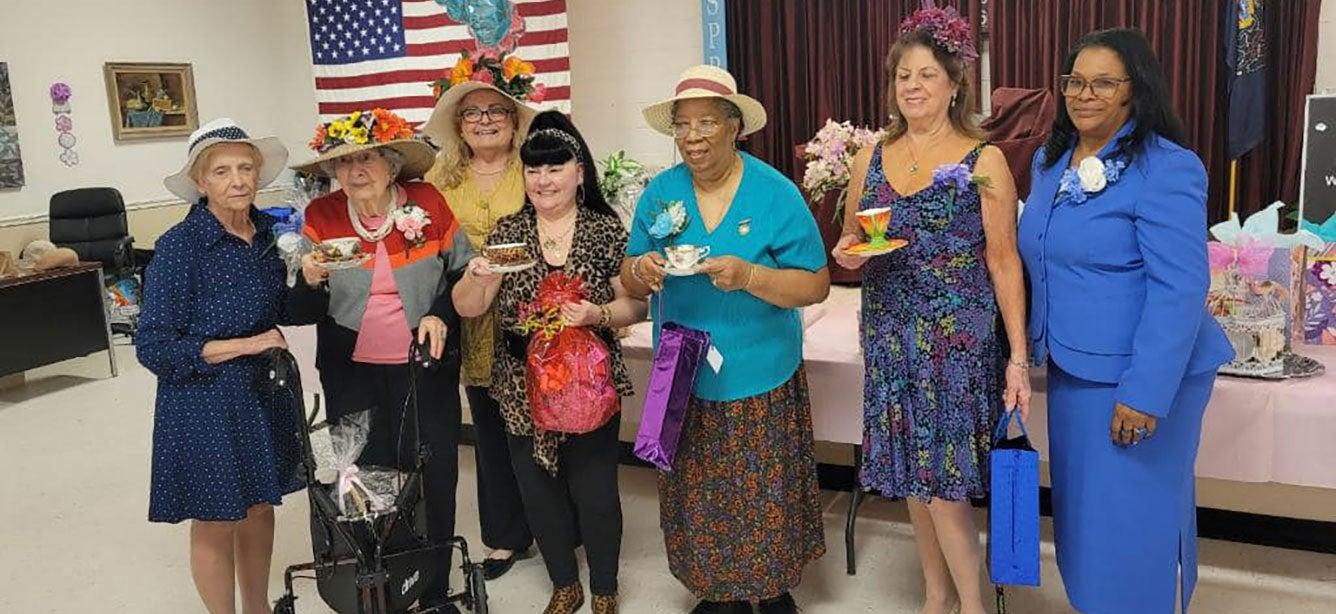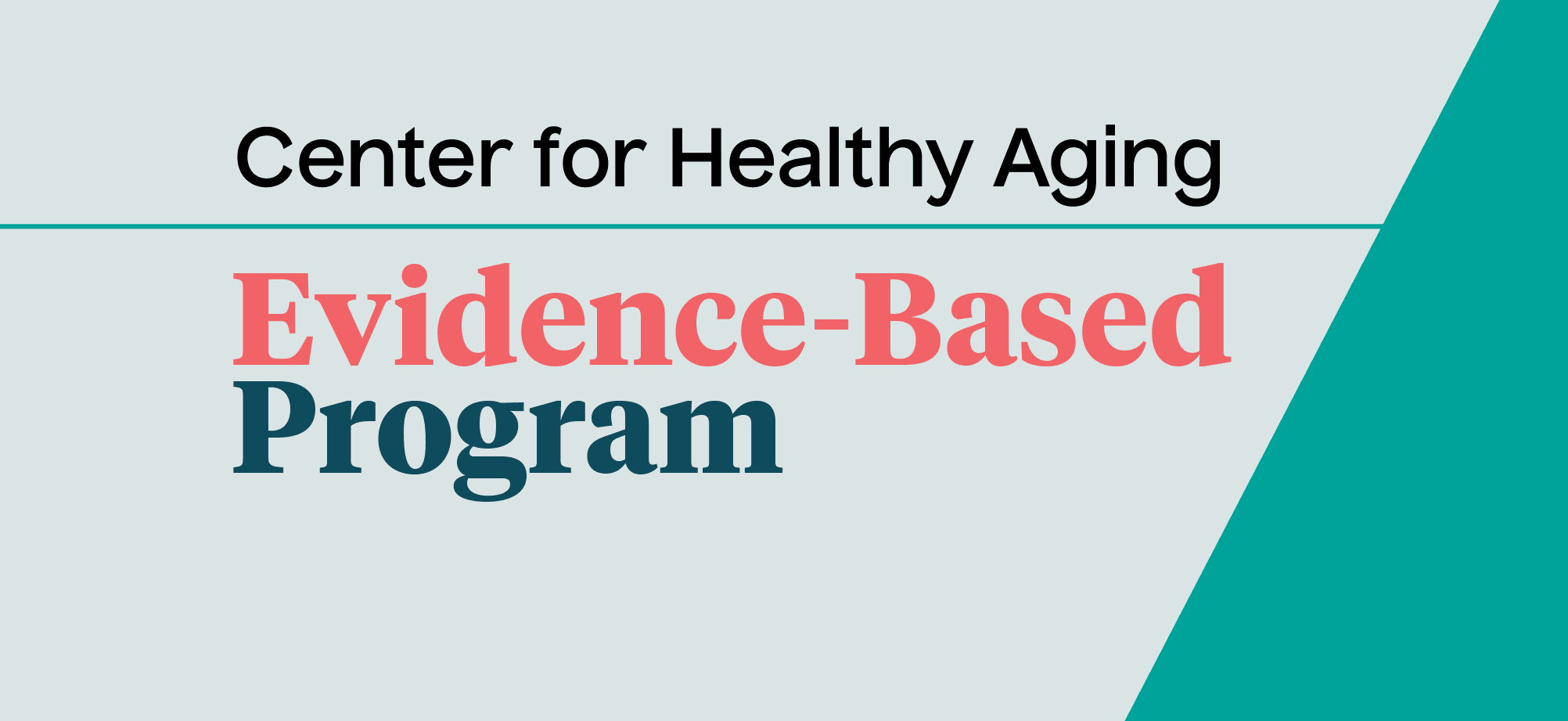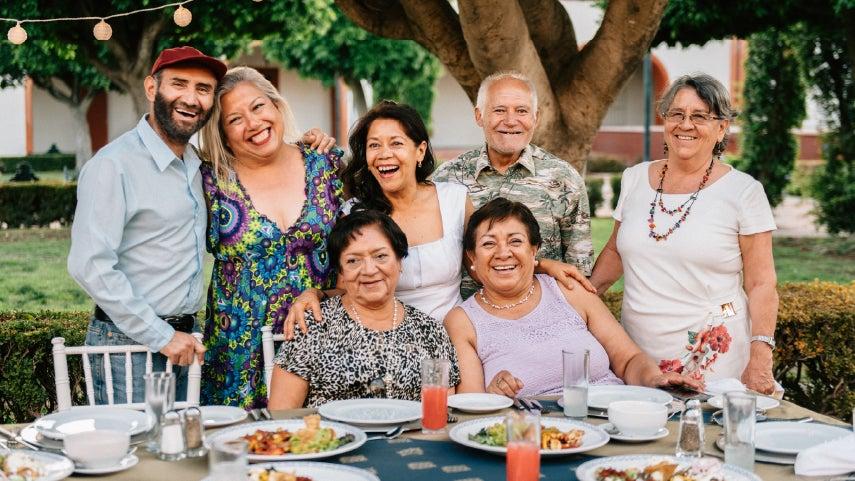4 Reasons to Partner with a Senior Center for Evidence-Based Programming and Beyond
6 min read

While evidence-based health promotion programs help older adults better manage their chronic conditions and prevent falls, not all older adults are aware of these programs. Senior centers can be a powerful partner in reaching more older adults with this type of support.
Senior centers fit well within a strategy many organizations use to expand and increase awareness of evidence-based programming: leveraging collaborations with local resources to reach older adults of different backgrounds and demographics. Many organizations, including Administration for Community Living (ACL) Chronic Disease Self-Management Education (CDSME) and Falls Prevention grant recipients, tap into the power of senior centers while expanding, implementing, and sustaining these programs in their local community.
Senior centers have been a consistently valuable partner succeeding in engaging older adults in these evidence-based health promotion programs:
- Senior centers are local, trusted places in the community that help people age well in a fun and social environment with opportunities to participate in programs and activities and stay engaged in the community.
- Senior centers are one of the best-performing implementation sites for evidence-based programs.
- Senior centers serve as a hub to connect older adults to other resources and services in the community to support their mental, financial, emotional, and environmental health.
If you haven’t already partnered with a local senior center, or if you want to learn more about the ways such partnerships can elevate your work, read on to see how four ACL grantees leveraged their local senior center to engage older adults in evidence-based programs and connect them to other available services.
Delivering evidence-based health promotion programs
While senior centers serve as a space for older adults to gather and socialize, they are ideal partners who can support the promotion of evidence-based programs and deliver workshops.
For example, the Area Agency on Aging of Pasco-Pinellas, Inc. (2020 CDSME) partnered with the CARES, Inc. CARES Rao D. Musunuru M.D. Enrichment Center to serve as an implementation site for CDSME workshops. This partnership began over two decades ago when AAA of Pasco-Pinellas put out an Older Americans Act Title IIID request for proposals for local organizations to serve as the implementation and delivery partner for CDSME. This partnership was an ideal match as CARES was a current license holder for CDSME (CDSMP, CPSMP, and DSMP) and have leader capacity for falls prevention programs. With a strong presence in Pasco and Pinellas Counties, Florida, CARES continued to be a partner with the AAA of Pasco-Pinellas in their ACL non-discretionary grant.
Along with being a current license holder, CARES played an integral role in their community as a delivery site for other community-based organizations to refer older adult participants to engage in evidence-based programs. Outreach in the community was also done by CARES to ensure at-risk individuals are aware of these beneficial programs to improve and better manage their health and stay connected to other older adult peers.
Connecting older adults to social services in the community
Senior centers serve as implementation sites for evidence-based programs, and they also support older adults in other aspects of their lives. One key strength is the fact that staff at senior centers are familiar with the resources and services available locally and are gateways to holistic support for older adults
ACL Grantee University of North Carolina at Asheville (2020 Falls Prevention and 2021 CDSME) partnered with the Davidson County Senior Center, Lexington, to promote evidence-based programs. The senior center has a designated evidence-based coordinator who is certified in several CDSME and falls prevention programs and acts as the connector among the senior center and the older adult participants.
This coordinator is very observant of all participants; if she learns someone needs assistance beyond the evidence-based programming, she will ensure that person gets the appropriate resources given that the Davidson County Senior Center, Lexington, has an abundance of resources on site. If for any reason the senior center is unable to address the older adult’s areas of concern, a Resource and Benefits staff member steps in to connect the older adult to someone local who can better support their needs, such as housing transition or congregate nutrition programs.
Supporting caregivers and promoting caregiver-focused programs
Not only do senior centers support older adults, but they are also a place of support and resources for caregivers.
Active Generations in Sioux Falls, South Dakota, is one of the implementation sites for ACL Grantee Sanford Health (2021 and 2022 Falls Prevention). What is unique about Active Generations is that they are more than a senior center—they recognize that caregivers play a valuable role in the lives of older adults, so they have activities and information for every person involved in the lives of older adults, including caregivers.
Active Generations strives to ensure caregivers have time for respite and recharge to provide the best care for older adults. An adult day program is available at Active Generations and is a secure area for older adults to stay while their caregivers recuperate. Evidence-based programs for caregivers such as Stress-Busting for Caregivers and Powerful Tools for Caregivers are available to promote self-care for the caregiver to better manage their stress and refine problem-solving skills. Staff at Active Generations also connect caregivers and older adults to support services available at the site or within their community and help to normalize requesting help and any type of assistance they are eligible for.
Engaging with local partners to raise awareness
Because senior centers engage with older adults from all backgrounds, they understand the health needs of older adults and rally local community partners in this effort.
ACL Grantee Virginia Department for Aging and Rehab Services (2021 Falls Prevention) contracted with Manassas Senior Center to deliver evidence-based falls prevention programs. The senior center, in conjunction with the Woodbridge Senior Center, is part of the Prince William Area Agency on Aging. They have an Evidence-Based Program Coordinator who is actively involved in the community. She conducts outreach within the Prince William area to promote Senior Centers Without Walls to older adults ages 55 and older and engages with faith-based communities, independent living communities, and assisted living communities to increase awareness of senior center resources and evidence-based programs for older adult parishioners and residents.
Additionally, the coordinator has a passion for preventing older adult falls. She puts together packets around falls prevention education for older adults. Each packet has information on evidence-based falls prevention programs offered in the area and general falls prevention suggestions, such as tips to prevent falls and how to be safe at home. These packets are available at both senior center locations for older adults to review, sign up for a falls prevention workshop, and apply tips to their daily routine.
Photo courtesty Morrisville Senior Servicenter
This project was supported, in part by grant number 90CSSG0048 and 90FPSG0051 from the U.S. Administration for Community Living, Department of Health and Human Services, Washington, D.C. 20201. Grantees undertaking projects under government sponsorship are encouraged to express freely their findings and conclusions. Points of view or opinions do not, therefore, necessarily represent official Administration for Community Living policy.


